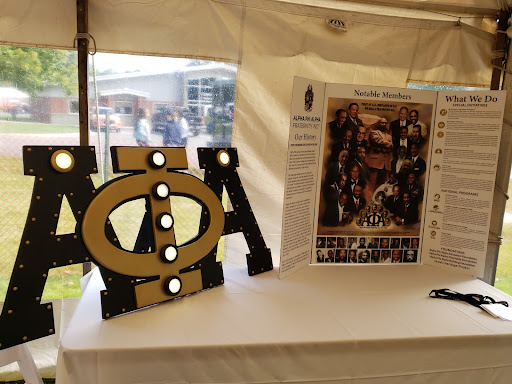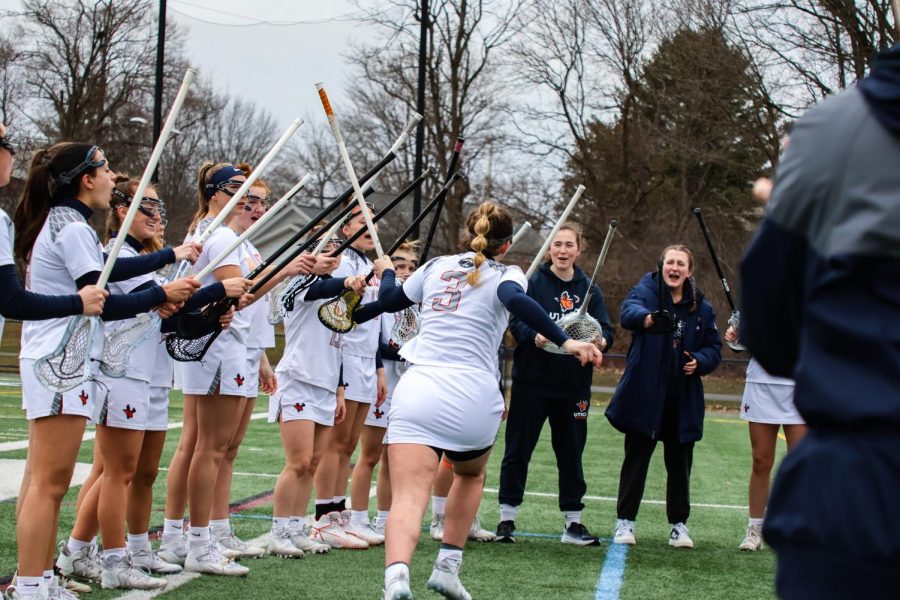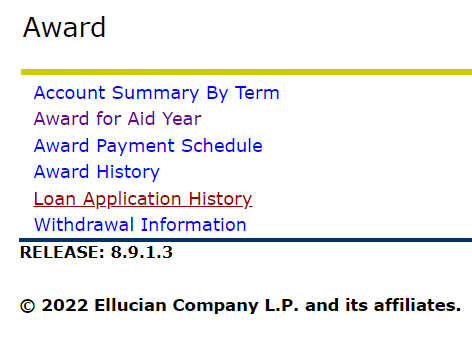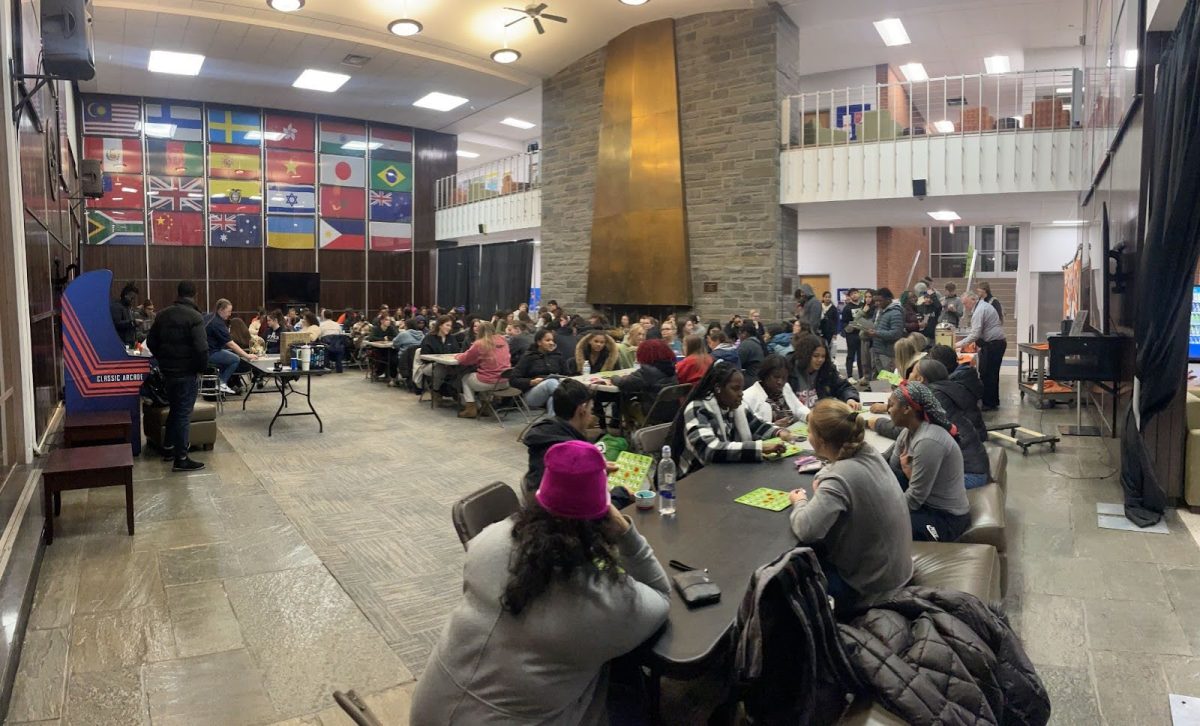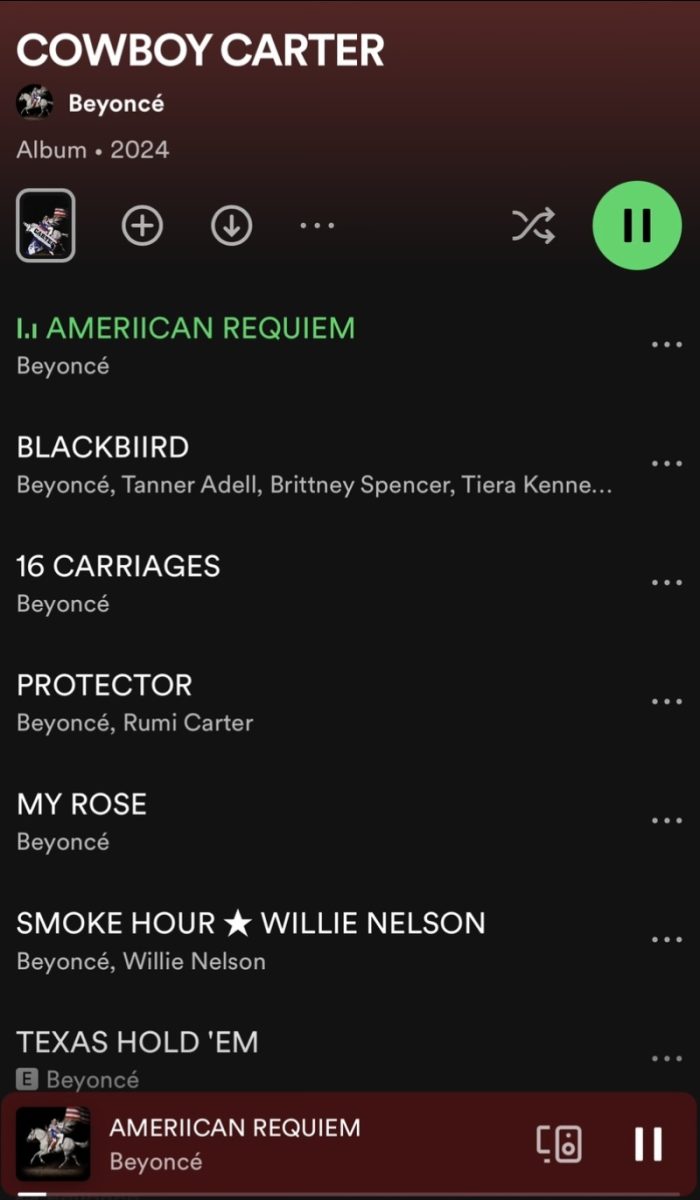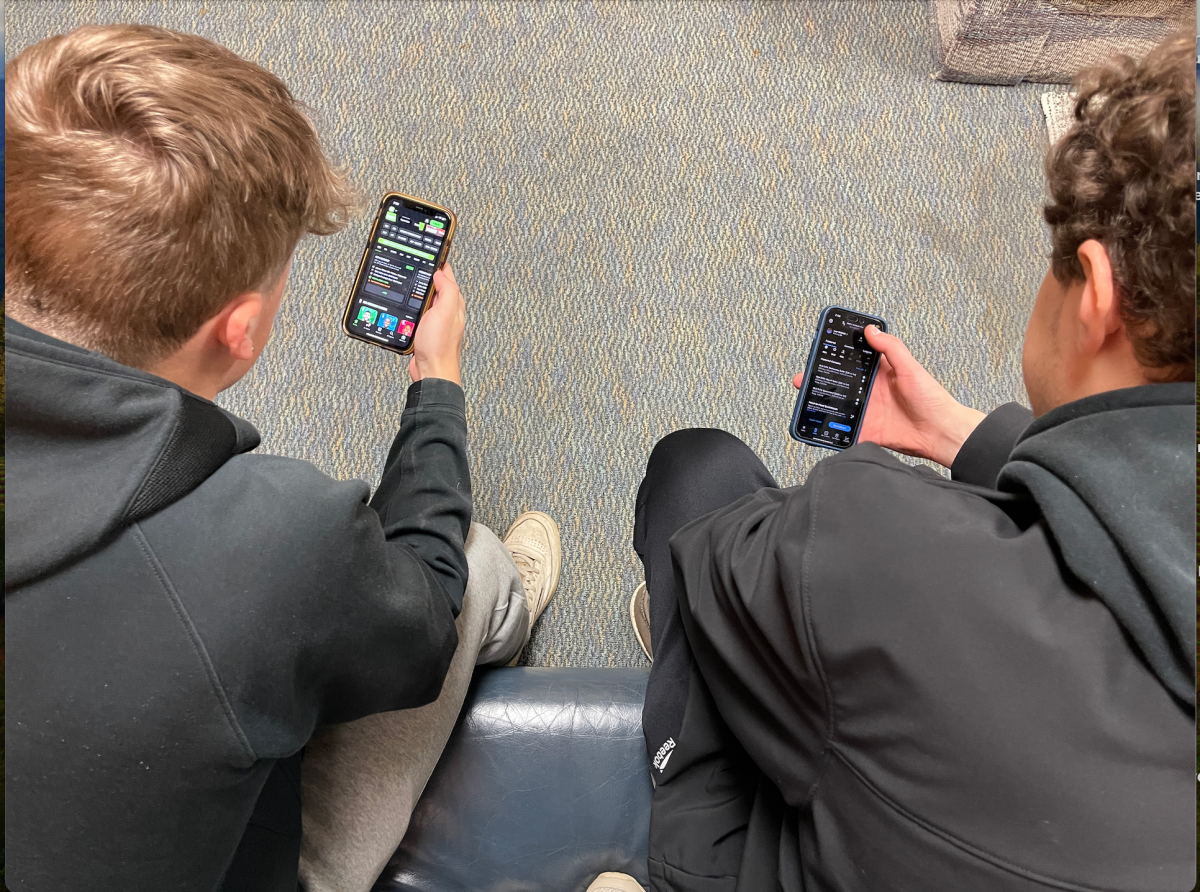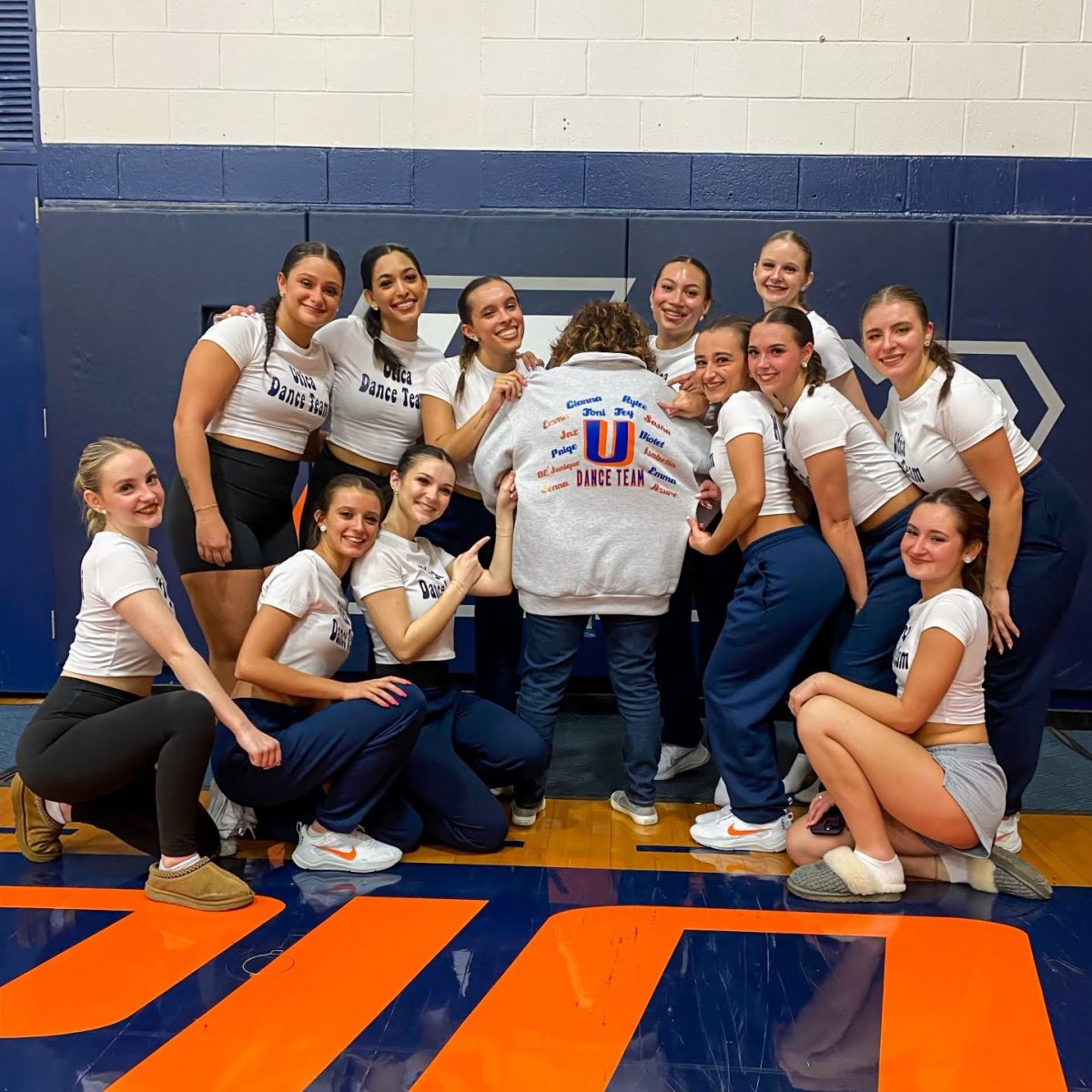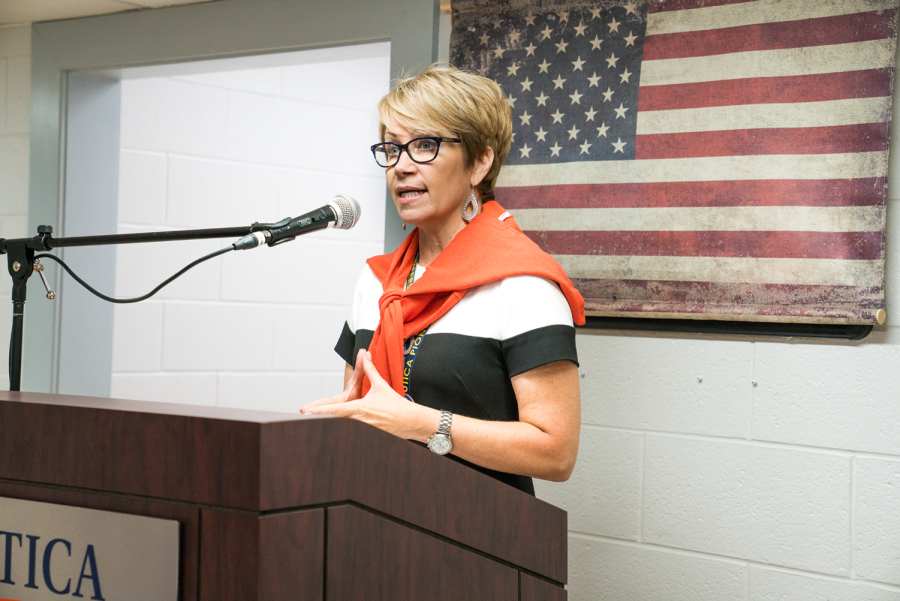Updated: Nov. 16, 2023 at 2:00 p.m.
The American Association of University Professors at Utica University (AAUP-Utica) has filed a formal grievance against the University for violating, but not limited to, two articles under the current Collective Bargaining Agreement (CBA), which the Board of Trustees unanimously approved on Sept. 28.
On Oct. 16, the University verbally informed a member of the union’s bargaining unit that it would be terminating the faculty member’s contract, then in writing on Oct. 20.
The tenure-track faculty member was reappointed last year, according to an initial AAUP-Utica email obtained by The Tangerine, and the University’s Interim Provost and Senior Vice President of Academic Affairs Stephanie Nesbitt aimed to circumvent the faculty member’s reappointment process due to their immigration status — breaching the terms of the current contract.
According to the email, AAUP-Utica is concerned about this case for many reasons: “We have learned there is a great disparity in how various members of our bargaining unit have been treated with respect to the visa/green card processes. Additionally, HR said in no uncertain terms that what is happening to this faculty member could happen to other faculty members in the future.”
On Sept. 29, in an investigation into potential contract violations, AAUP-Utica sent the University a request for information from which a majority of the information was not provided. The union on Oct. 11 attempted to resolve the matter in step one before the grievance was filed — the University declined. The chapter then began consulting with an immigration attorney whom the governing board officially hired on Oct. 24.
“The university has refused to fulfill its legal obligations under the National Labor Relations Act (NLRA) to provide information relevant to the processing [of] a grievance in a timely manner,” the grievance said.
From there, a second request for information was filed which included an inquiry into how the University processes sponsorship for employees with green cards.
“This information is required to be kept on file in accordance with the code of federal regulations,” the grievance said.
“At this time, additional information from the University will not be forthcoming,” the University responded on Nov. 3.
The official grievance letter, the second overall against the institution in the step two-phase, was sent to Nesbitt on Tuesday, Nov. 7 which in part stated that the University has broken federal laws by not providing the relevant information, nor has it provided a reason why the information is being withheld.
“This grievance is heartbreaking for two reasons,” AAUP-Utica President Leonore Fleming said. “First, because of what we’ve learned when talking to faculty members about their experiences as non-U.S. citizens working at this institution. Second, because I was feeling good about the future under the new university leadership, and now some of my enthusiasm is gone. I am still hopeful that President [Todd] Pfannestiel and I can work together on this issue and on other issues, and I do still have hope that we can work together to build back a culture of shared governance.”
According to Utica’s non-discriminatory policy, the institution provides equal opportunity and accepts students and employed individuals without regard to race, national origin or citizenship. The union however said the claim is “false.” And through interviewing chapter members who hold green cards or have applied found disparities in how those members have been treated.
“When we started investigating this case, we focused on a particular faculty member, but as we continued investigating, the various issues began to grow and grow,” Fleming said. “We have uncovered a number of things, and this case is now so much larger than I ever imagined.”
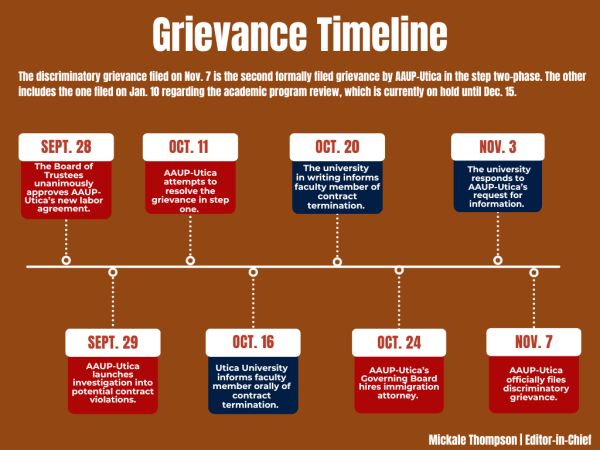
Nesbitt did not respond to The Tangerine’s request for a statement or an interview on Nov. 7. From there, The Tangerine reached out to Vice President of Human Resources and Professional Development Lisa Green, who declined to provide a comment along with Pfannestiel who said he “will not publicly discuss any confidential personnel matters.”
“The grievance process is very specifically laid out in the collective bargaining agreement between the University and the faculty union, and we will follow that process as required,” Pfannestiel said in an email to The Tangerine on Nov.14.
In an addendum to the current contract from the previous CBA in regards to grievance procedures, a meeting will be held amongst officials from the University, the grievant and the union’s grievance officer 10 working days after the grievance is received. The university officials then have seven days to reply in writing after the meeting.
If the grievance isn’t resolved in step two the grievant may appeal in writing to a grievance committee — selected by AAUP-Utica’s grievance officer, who consults with the grievant and no more than three members of AAUP-Utica — the president of the University or his or hers designee.
“This discussion and review shall occur within ten working days of receipt of the reply referred to in the last sentence of step two,” the 2015-2020 CBA said. “The president (or his or her designee) shall reply in writing no later than 15 working days after the discussion and review meeting.”
In step four.
With the concurrence of the grievant in the case AAUP-Utica may submit the matter in writing — along with copying the president of the University and its lawyer — to the American Arbitration Association (AAA) in accordance to the Voluntary Labor Arbitration Dispute Rules in effect if the grievance isn’t resolved step three.
“The selection of the arbitrator and the procedures for the formal proceedings shall follow the AAA’s rules,” the CBA said. “The submission to arbitration shall occur within 15 working days of the receipt of the president’s reply referenced in the last sentence of step three.”
“The decision of the arbitrator shall be final and binding on both parties and not subject to appeal. The arbitrator shall have no power to add to, subtract from, change any provision of this agreement, or imply any obligation not expressly set forth in this agreement. No award shall be effective retroactive beyond the date of the grievance.”
At press time on Nov. 15, the University officials and members of AAUP-Utica were scheduled to meet Monday, Nov. 20 at 9 a.m.
EDITOR’S NOTE: This story has been updated adding the fact that Interim Provost and Senior Vice President of Academic Affairs Stephanie Nesbitt didn’t not respond to The Tangerine’s request for an interview or statement on two separate occasions on Nov.7. The updates also noted that Vice President of Human Resources and Professional Development Lisa Green declined to comment on the matter when reached out to on Nov.9 along with adding the Nov. 14 response from the University’s President Todd Pfannestiel.

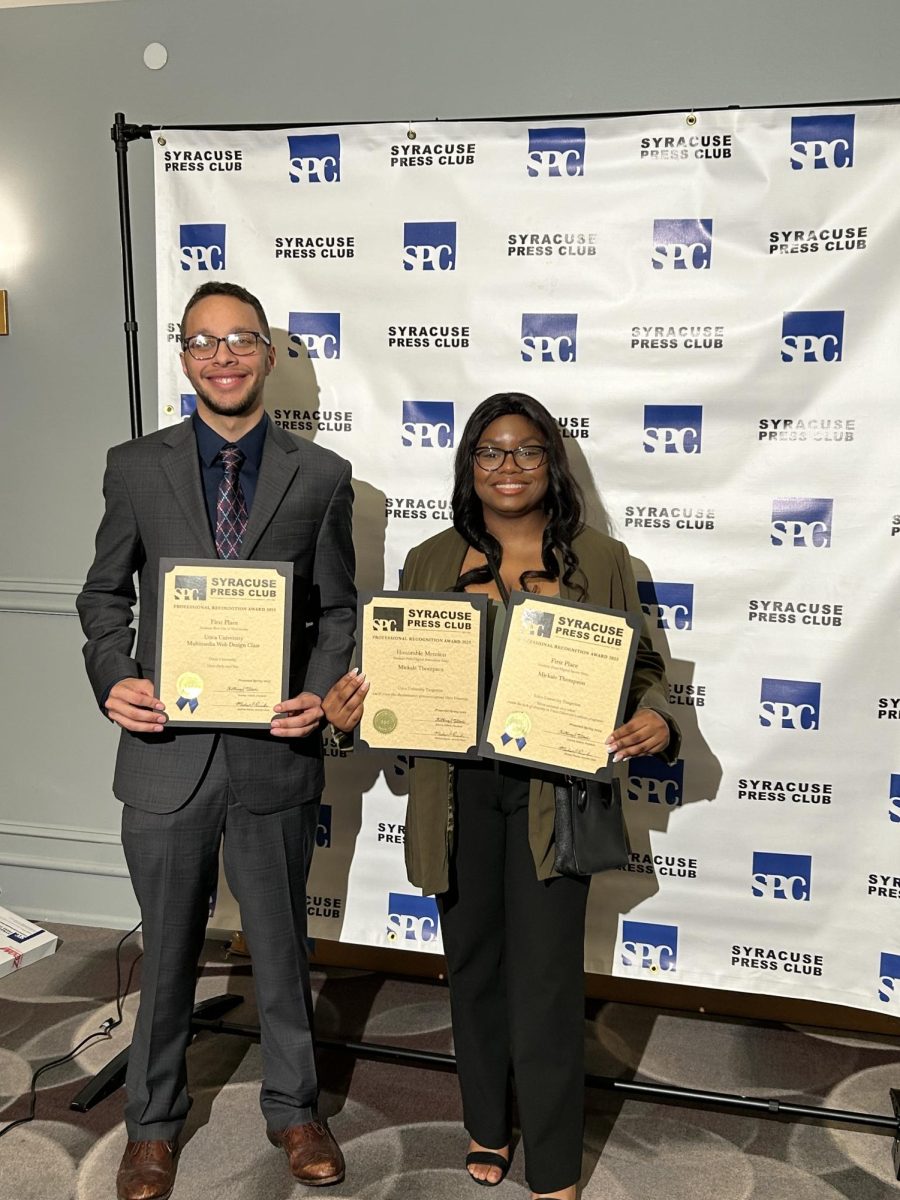


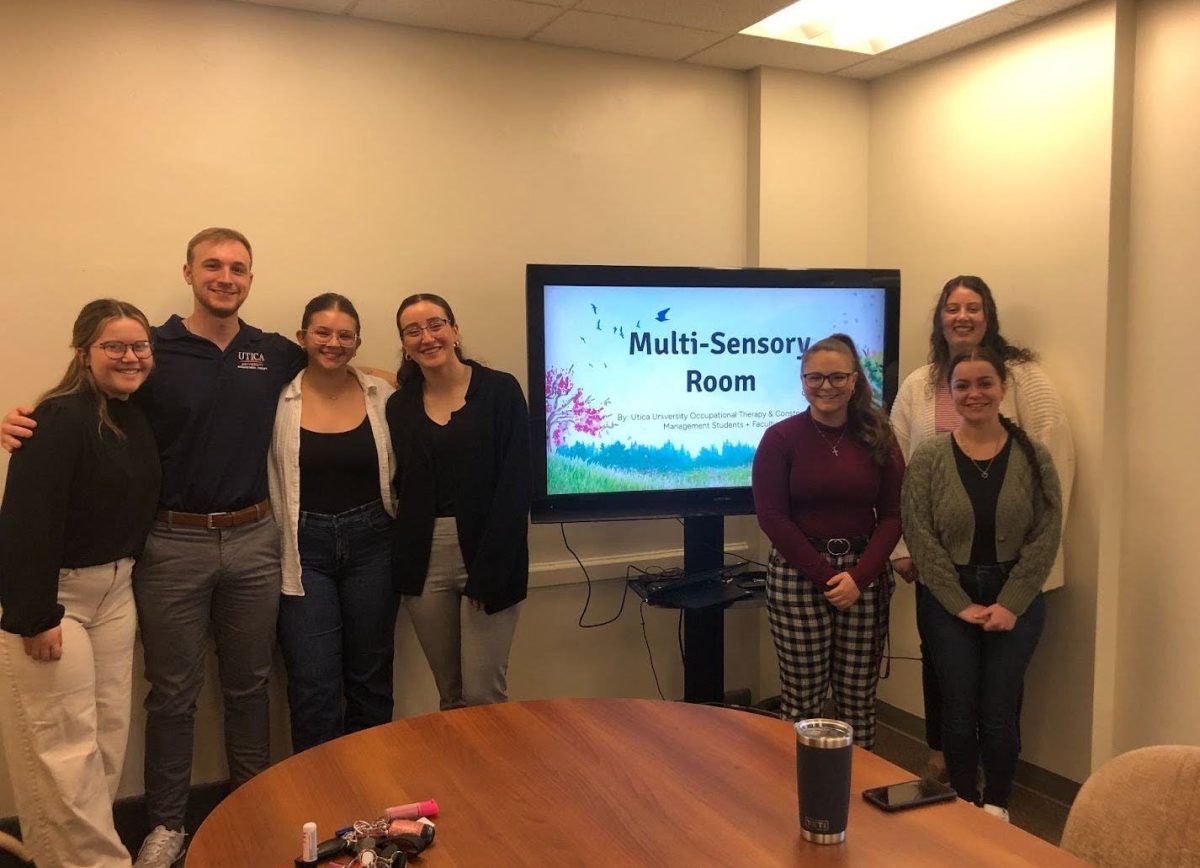













![President Todd Pfannestiel poses with Jeremy Thurston chairperson Board of Trustees [left] and former chairperson Robert Brvenik [right] after accepting the universitys institutional charter.](https://uticatangerine.com/wp-content/uploads/2023/10/unnamed.jpeg)








